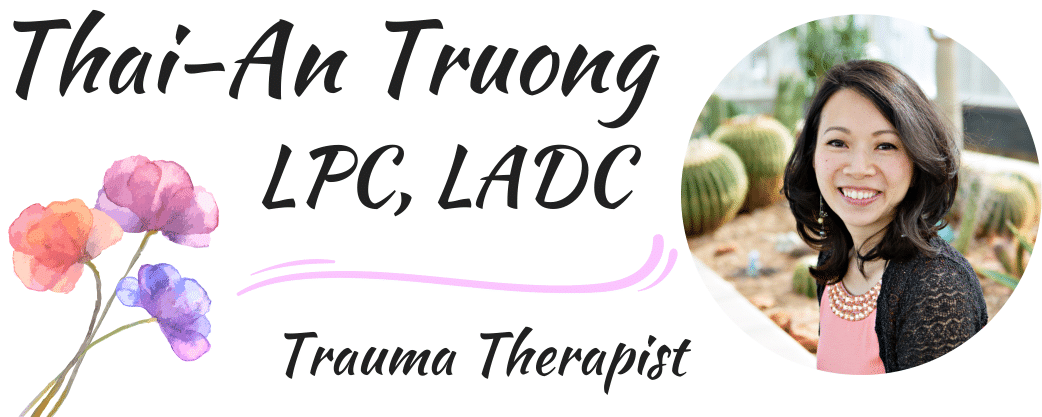Obsessive/intrusive thoughts vs. actual risk of harming baby
/Did you know that about 91% of new moms and 88% of new dads have scary, intrusive thoughts? (Kleinman, K.; Wenzel, A., 2011. Dropping the Baby and Other Scary Thoughts.)
Intrusive thoughts/postpartum OCD vs. actual risk of infanticide
Intrusive thoughts are probably the most misunderstood postpartum symptom. This is when you have thoughts or images of harm coming to your child by your hands, someone else's, or something. These thoughts are disturbing to the mother, difficult to control, and doesn't align with her values.
Everyone freaks out when they hear about these scary thoughts, even healthcare providers oftentimes do not know how to respond in a helpful way, magnifying the anxiety and fears in the mother. Our media has dramatized instances of infanticide and stigmatized postpartum depression, forever linking the two. Instances of infanticide are extremely rare and the state of mind of a woman that leads to infanticide is actually very different from intrusive thoughts.
Women who have followed through with infanticide were often suffering from a rare postpartum illness called postpartum psychosis. In that psychotic moment, they may believe their baby is possessed or will suffer forever, so ending their life was actually seen as an act of mercy. It's counter-intuitive, but truly an act of maternal love in that state of warped reality. So the major difference is the scary thoughts do not disturb the woman with psychosis, it seems to align with their values at the time. So paradoxically, the anxiety and cocern about the scary thoughts is a good sign.
I want to clarify that not all women who suffer from postpartum psychosis are at risk of harming their babies. I've treated several women with postpartum psychosis after they were stabilized in an inpatient setting, and there was not a risk of harming their babies. I also want to additionally emphasize that even in the cases of postpartum psychosis where infanticide is a risk, reporting them is still not as helpful as getting them help and inpatient treatment. They can be stabilized and fully recover after some follow-up care.
You are seriously not the only one going through this.
If you are suffering from intrusive thoughts, you are seriously NOT alone and NOT a terrible human being for having them. We didn't ask for this anxious symptom. They're also a lot more common than we think. It's just that no one dares to talk about them due to the fear of judgment and uneducated, knee-jerk responses.
Scary thoughts are a common phenomenon with all new parents (Abramowitz, Schwartz, & Moore, 2003) Research shows no correlation between a mother's scary thoughts and her acting on these thoughts ( Barr & Beck, 2008)
Almost all of the women I've treated have had some form of intrusive/obsessive thoughts. I've found if there is no psychosis (hearing voices, seeing things others don't see, paranoia, beliefs that are out of touch with reality) or mania (not sleeping for at least 48 hours, hyper-verbal speech, impulsivity, disorganized thoughts), my client's intrusive thoughts have been completely treatable in an outpatient setting.
So how do I deal with the scary thoughts?
💖 Try the Positive Reframing tool: Write down how you feel when the thoughts come up (e.g., scared, disturbed, sad, anxious, frightened, ashamed, etc).
Then write out what each of these emotions show about you as a person and a mother that's positive and true about you. This can be a bit challenging when you're down, but here are some examples:
Feeling disturbed shows that I really don't want harm to come to my baby.
The anxiety is making me extra alert and cautious so I can protect the baby, this show I really care about my baby's well-bein.
My shame shows my high standards and desire to get better, so my thoughts can align with my values again.
My sadness shows I value a healthy connection between me and my child that's not where I want it to be right now.
I want to repeat that scary, intrusive thoughts are COMPLETELY TREATABLE. This first technique is just from 1 of 4 treatment models that I use to treat intrusive thoughts/postpartum OCD in my postpartum women. Visit my Facebook Page or YouTube channel to watch all 4 parts.
For more tips and techniques to feel like yourself again, click here for exclusive access to my free guide and 4-day e-course for overcoming postpartum depression and anxiety.
Hi, I'm Thai-An. I'm a postpartum therapist and mother who is passionate about helping pregnant and postpartum parents overcome depression and anxiety so they can feel like themselves again and enjoy life with their baby and family. After overcoming my own battle with postpartum depression and anxiety, I opened Lasting Change Therapy, LLC in South Oklahoma City to dedicate my counseling practice to helping families have postpartum recovery and wellness, and I love it!


